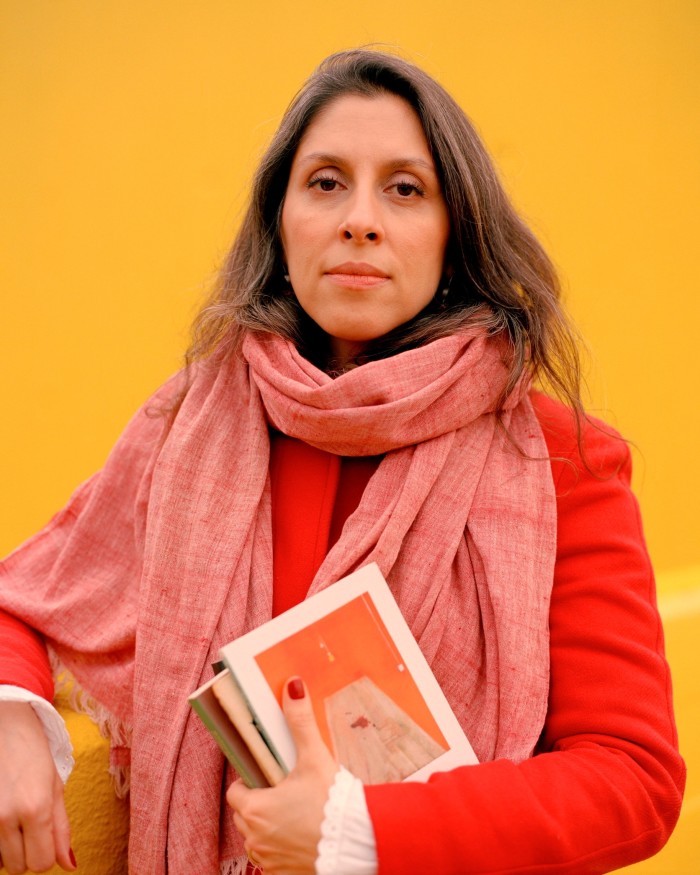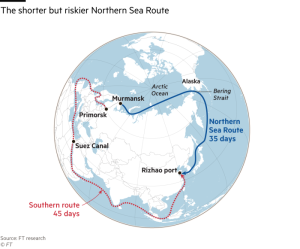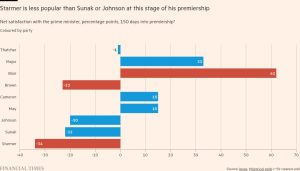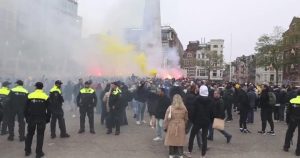Nazanin Zaghari-Ratcliffe on her liberation from Iran

Like most people, I have always associated freedom with political or civil rights. It used to be an abstract concept to me. But that changed entirely when my rights were suddenly taken away.
In March 2016, my daughter and I took a two-week trip to Iran to be with my family for the Persian New Year. On the way back to London, I was abducted at the airport, taken to an unknown location, interrogated for months, accused of plotting to overthrow the Islamic Republic’s government and sentenced to five years in prison.
I spent the best part of the first year of my incarceration in solitary confinement. So unexpected was my arrest that I had no time to process it. I was terrified and confused. Everything had vanished: my motherhood; my home; my entire world. All of them were suddenly unavailable to me.
I was a stranger in the world they had thrown me into — the isolation, the discipline, the punishment, the uniforms and starvation. All of it filled me with fear, doubt, loneliness, anger and hate.
Sometimes the best way to appreciate something fully is to be made to live without it. I was lonely, and unfree. So my mind started redefining those concepts. In order to set myself free from the boundaries imposed on me by the prison walls, I had to create a parallel world of my own. Liberation came only when I realised no one could take that away from me: my mind, my ability to dream and let go of the darkness happening around me.
All that we create and conceive outside can be replicated inside. There were many nights in prison when I dreamt of entering a supermarket, passing through the fruit and vegetables section, getting in the lift and going to the fourth floor towards the home and clothes section. Yet every single time, I lost my way, couldn’t find the exit and got stuck there. In the dream, I was surprised that I could walk freely into a place outside prison, but then my subconscious would remind me that I was not free.
For the first nine months of my imprisonment, I was kept in complete isolation. I had minimum contact with people, and virtually no access to anything, including pens, papers and books. The only books I was allowed were a Holy Book, and one heavily damaged prayer book. I soon realised that other prisoners, depending on their circumstances, charges and the length of their stay in isolation, were allowed to have books and writing materials. But I seemed to be an exception. After a couple of months of battle and many complaints, my family were finally allowed to bring me books.
These books were both in English and Farsi. I read them over and over. They pulled me into a different world, allowing me to forget where I was. The moments I looked forward to most in isolation were when, after long hours of interrogation, they sent me back to my cell. It was then that I could drown my fears and sorrows in the stories of others.
After those nine months, I was transferred to the women’s political ward in Evin Prison, where I spent the longest stretch of my incarceration. There, many of us found solace in small things that connected us to the life we had before prison. Freedom is not an island; it is in connections and conversations, in everyday human things. We found freedom where it wasn’t typically found, and in these small things, which reminded us that life did not end there.
Books played a huge role in freeing my thoughts. Without the books and stories that expanded my horizon and gave me wings to fly over and above the towering brick walls of Evin, I would have wasted my time in prison completely.
On arrival, I was given a bed located right by the main library, which contained hundreds of books: shelves upon shelves of philosophy, history, religion, psychology — and a collection of novels by French, German, Russian and British writers.

On my first night, one of the longest-serving inmates gave me The Feast of the Goat by Mario Vargas Llosa. My mind was muddled and I could not flow with its stream of consciousness, so I left the book for another time. But when I went back to find it a couple of weeks later, it was not there.
Soon I realised there was another world of books in Evin. These were kept in inmates’ personal beds and off the public shelves. For books to reach the ward, they had to go through an arbitrary vetting process by the prison authorities. Most of these books hadn’t. They were predominantly personal books bequeathed by previous inmates. You’d often find little notes written in them, with the names of their original owner and the date it had arrived at the ward. They somehow kept the legacy of previous inmates alive through their reading material.
Reading was one of our core activities. We read both on our own and in groups. We had three books written by George Orwell in our library: the most celebrated and well-read being Animal Farm, as well as Nineteen Eighty-Four and Burmese Days. Only the last one was on the public shelf. I had read Nineteen Eighty-Four before I went to prison, but I felt very differently about it when I read it again with my fellow prisoners. It was remarkable how the story acquired a new relevance to us.
The story resonated deeply with what we had all gone through; we were victims of a totalitarian state that maintained physical and psychological control over its people. They extended their systematic control into the prison by relentlessly subjecting us to ever stricter forms of surveillance, including cameras and informers.
Prison authorities were particularly sensitive about certain sorts of books. As such, we had to hide some of our books away from the main library. One day an inmate received The Handmaid’s Tale by Margaret Atwood through the post. It was only then that one of the prison guards recognised the book, and asked how we managed to get hold of it. To our surprise, not only did she not confiscate the book, she in fact encouraged us to wrap its cover with newspaper so that the cameras wouldn’t capture it. The waiting list to read that book was insane; one of those in the queue was the guard herself.
I have often wondered where we would be if people did not tell their stories about war and disease, political disputes and revolutions. We would surely then struggle to understand who we are; without such documents, we would know nothing of the bravery it took for these people to survive such tragedies. It always struck me as amazing that stories written hundreds of years ago were still capable of giving us refuge from the hard times we were experiencing in prison.
The women’s political ward at Evin Prison was no ordinary place — certainly not when I spent time there. Over the past couple of decades, and since the Islamic Revolution in 1979, Evin Prison had accommodated many resilient and brave women who had served prolonged periods of time there. Under an increasingly misogynistic regime, where women were kept at a lower social status than men, female prisoners had to fight much harder than men for their basic rights.
We had occasionally managed some small victories in the past, including winning the right to have our own kitchen to cook in, or wearing ordinary clothes instead of prison uniforms when being taken outside to court or hospital. But we were not successful all the time. Books remained a precarious and contested area. We were adamant not to lose our right to control what we read or thought; to win the war, we reluctantly had to lose the battle sometimes.

Living under the constant surveillance of the prison cameras was disconcerting and somewhat dehumanising. They could monitor what we talked about, what we read or watched, and that was terrifying. Every single corner of the ward was equipped with cameras, with the exception of the toilets and showers. The guards did not need to leave their screens to monitor us, as the number of cameras in the ward exceeded the number of prisoners.
However, in defiance of cameras, we came up with solutions: we put up curtains around our beds for more privacy, moved our political discussions into the corner of the yard, and found ways to listen to jazz and pop music through the most unfashionable channels. On celebratory occasions we played percussion on the kitchen pots, and laughed hysterically when some of the girls did Zumba for the first time. Big Brother might have been watching us, but we still talked politics and carried on dancing.
One of the most frightening things for totalitarian states is freedom of thought, and this is exactly what the prison authorities, as a mouthpiece of the Islamic Republic, were trying to control and influence in every possible way. They considered our reading sessions and discussion groups a threat to the ideology they were trying to impose on us.
In his 1941 essay “Literature and Totalitarianism”, Orwell tells us: “Totalitarianism has abolished freedom of thought to an extent unheard of in any previous age . . . It not only forbids you to express — even to think — certain thoughts, but it dictates what you shall think, it creates an ideology for you, it tries to govern your emotional life as well . . . And as far as possible it isolates you from the outside world, it shuts you up in an artificial universe in which you have no standards of comparison.”
Under such circumstances, freedom of thought is invariably doomed. That is why the prison authorities were so keen to control what we read or discussed. They’d often find ways to interrupt our classes — such as our weekly reading sessions of The Phenomenology of Spirit by Hegel — to the point where it was hard to keep them going. But we found ways to continue holding tight to one thing we could control: our thoughts.
For quite some time I struggled to believe and accept that I had ended up in prison. I wasn’t there for any crime I had committed, but as a victim of a political dispute, which increasingly became clearer. Once the truth was out, there was no way to deny it. But it wasn’t straightforward. They had turned me into a commodity, with a certain value that varied from time to time depending on the political climate. And that cast a huge shadow over my truth. I had initially thought that my truth was so evident that it was impossible to ignore. But this was a symptom of my naivety. I did not exist to them as a human being; I was just a number.
It took any number of conversations, conducted over the constantly broken lines of the brief phone calls allowed (which were regularly interrupted by a pre-recorded message reminding us that “this phone call is made from Evin Prison, the person calling is a prisoner”), to be convinced that what happened to us could have happened to anyone. The question “why me?”, though impossible not to ask, made no more sense here than it would have after an accident or the death of a loved one.
It was only when I stopped searching for reasons that I found peace and freedom within myself, which was something they could not stop me from having. It was a long and challenging process, full of doubt, uncertainty and the anguish of separation from one’s own child, made worse by the fact that the unknown storyline around my case was huge.

As I was chopping potatoes in the prison kitchen, the British foreign secretary at the time was providing inaccurate information about me to the UK parliament. Meanwhile, the propaganda machine of the Iranian government was busy producing false and fabricated stories about me. I am not able to claim I fully accepted this state of affairs, but I can safely say that there eventually came a time when I allowed myself to relax again, to laugh, to sing and dance and to appreciate the things I still had, and not just dwell on what I had lost.
It was a long road, but the truth eventually prevailed and, after six years of incarceration, I returned back to my home. This was an inconceivable experience all of its own; I was constantly stopped in the street, greeted by people and handed flowers. People driving would stop their cars in the middle of the road to get out and give me a hug, sometimes while bursting into tears. I had love and affection all the way through — but, at the same time, there were lies on social media about me with the continued pretence that I had not in fact been taken to recover the historic debt which, once paid off, led to my release. I realised that people lived in different bubbles and that I was an object around which different stories were told. I was now familiar and strange at the same time.
Once the euphoric moments of freedom had subsided, life looked very different. I was myself, flawed and fearful, suffering from depression, anxiety about public spaces, about strangers and police uniforms, taking refuge in our small flat, most of the time liberated from my adult responsibilities. Rehabilitation proves to be a time-consuming journey.
It is easy to become jaded to the world and its pleasures, no matter how long you have been away from it. Deep down, I am still absolutely terrified. I feel a huge sense of dread over the world we live in with its advanced technology and constant changes. I still find navigating through a website, finding a new route or choosing food from a restaurant menu so challenging.
Yet I do not underestimate the value of freedom. This lies in simply being able to do normal things again. The freedom of not being controlled by others, but being able to choose and enjoy life as it is, is a blessing. It might sound small, but walking into a supermarket freely and picking up things from the shelves, drinking an unlimited flow of coffee, not queueing to have a shower — these things still fill me with joy every single day. I can now run the washing machine relentlessly without having to wait for a whole week to have my turn. I can have my meal in peace, without rushing to be in line for washing up. I don’t need to worry about my teaspoons going missing. I can go to bed anytime I want, without worrying about the cut-off time (although I am still the first person to bed in our household, just now entirely without pressure).
We all deserve to know that “freedom is not a given, but a choice”. True feeling of freedom is the ability to drop the judgments imposed on us by the world and society we live in, to liberate ourselves from unhelpful mindsets, limiting beliefs and the trapped feelings that come from unchangeable circumstances. It is to embrace and embody every little piece of freedom we have, whilst fighting for the bigger truth.
Freedom is a choice.
This essay is based on Nazanin Zaghari-Ratcliffe’s 2024 Orwell lecture at the Southbank Centre’s Queen Elizabeth Hall in London
Find out about our latest stories first — follow FT Weekend on Instagram and X, and subscribe to our podcast Life & Art wherever you listen
#Nazanin #ZaghariRatcliffe #liberation #Iran






